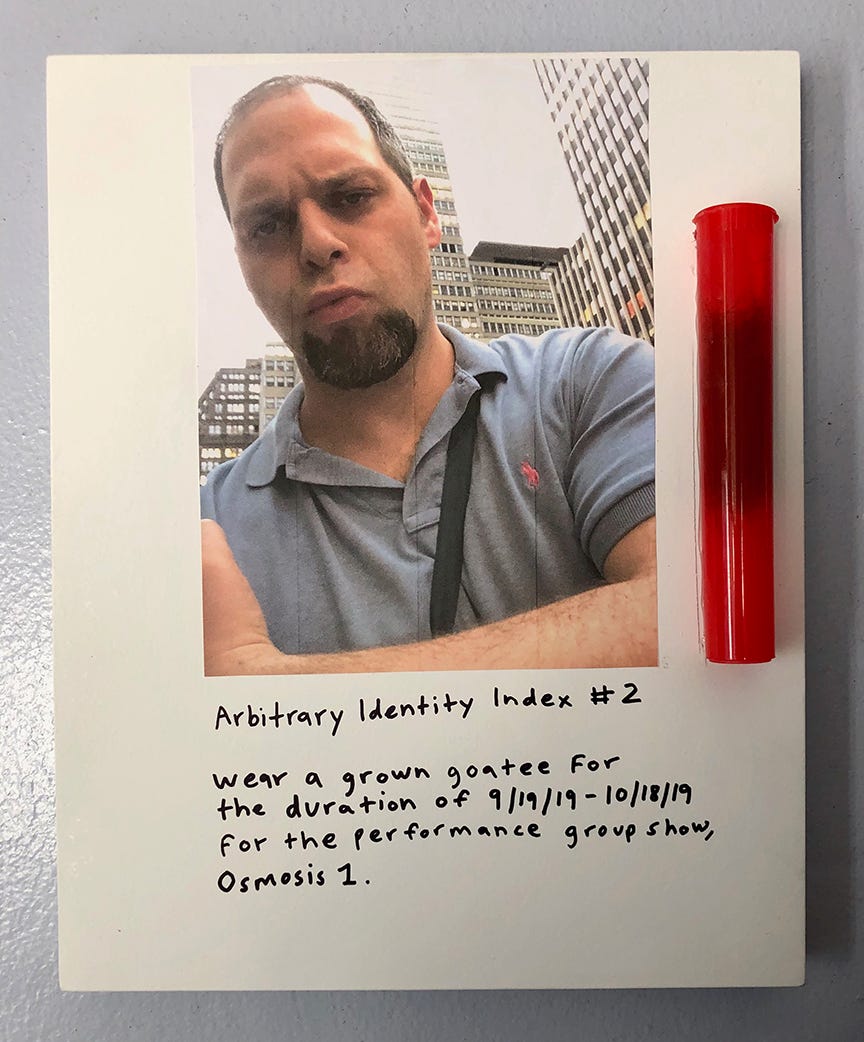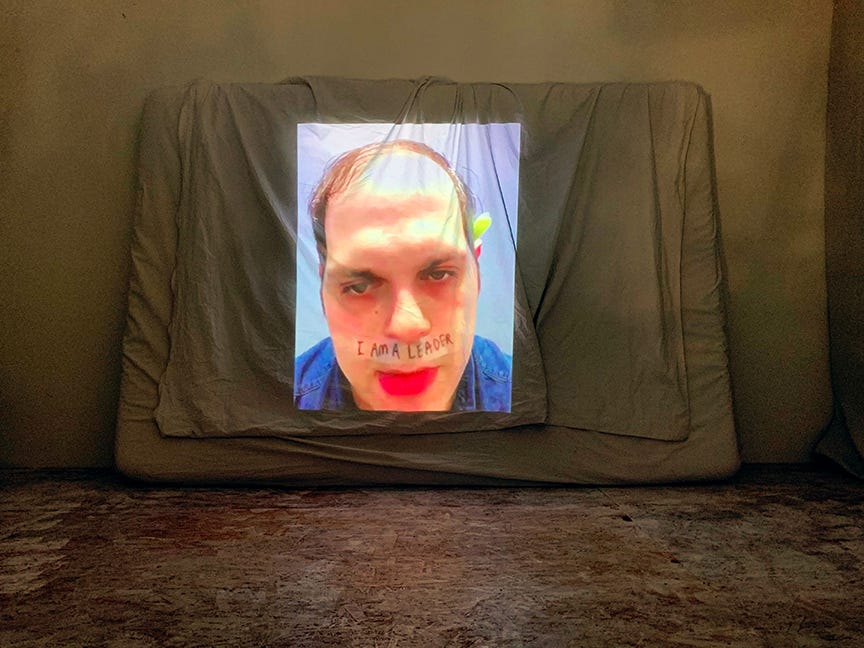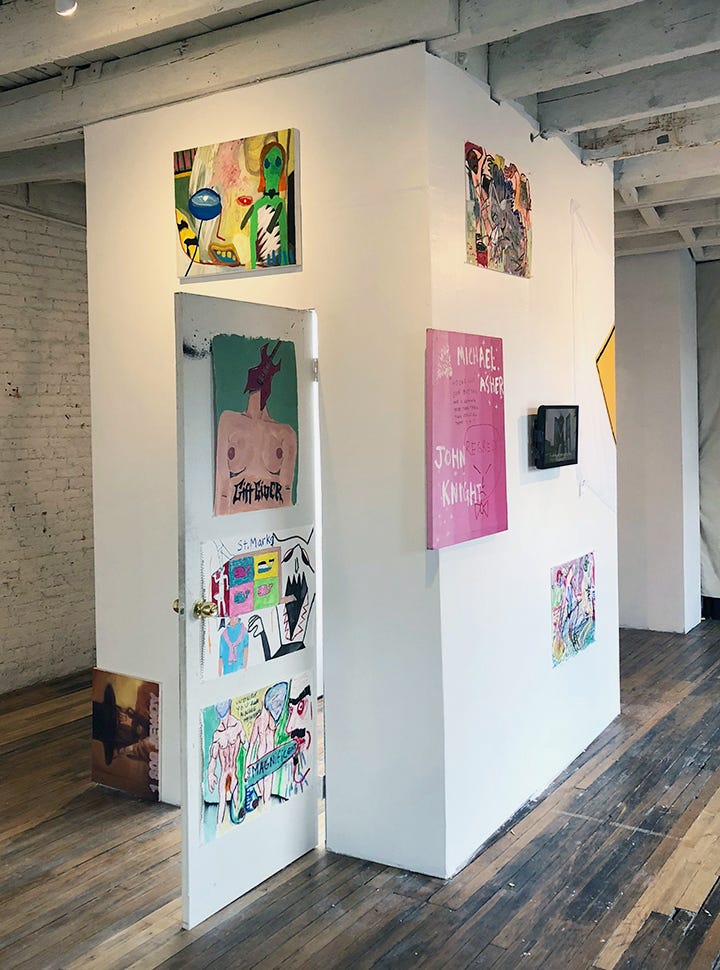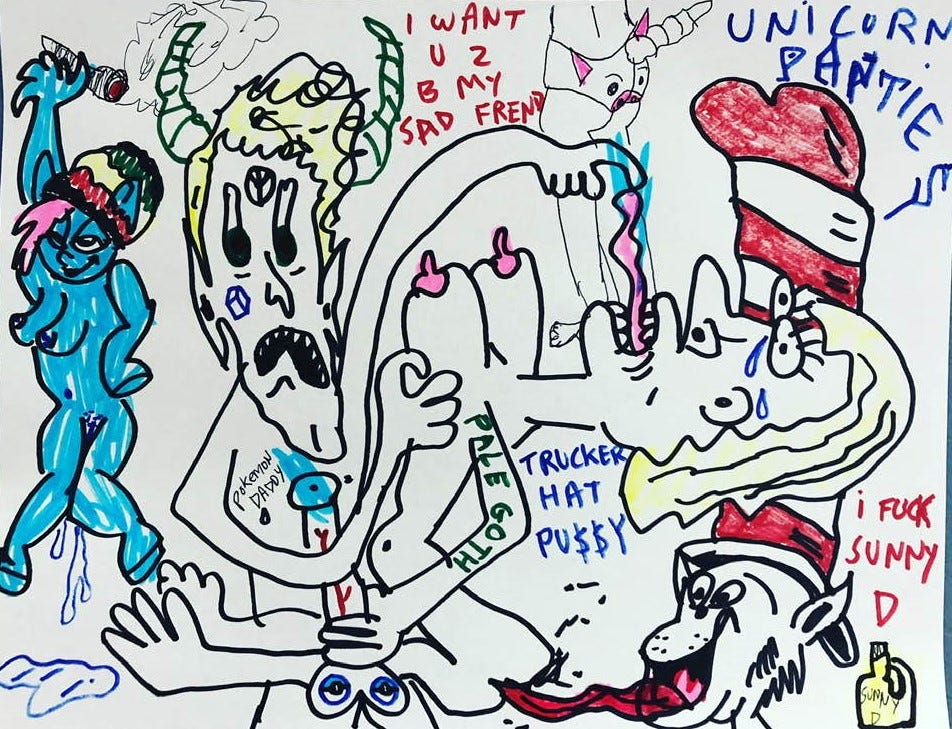Safety Propagandist #4: Alex Bienstock
Adam Lehrer Corresponds With Our Fourth Safety Propagandist, the contemporary artist and internet psycho warrior Alex Bienstock
Alex Bienstock is an artist that draws, paints, writes, and performs. His practice is a fluid seepage of stream of consciousness creative thought that disperses itself throughout the digital space and infects our minds, like a virus. Alex treats the internet as formal material; on his Instagram, he posts clips from private conversations, memes, revealing selfies, and all manner of digital ephemera. He uses the bizarre social relations of a digitized world to collapse the distance between art and real life. There is no art, and there is no real life. No one amongst us even understands these concepts anymore, so don’t pretend that you don’t know what I’m talking about! Alex just opens himself entirely to digital interactions so he can channel it, and become its vessel. For Alex, “cringe” is the new “punk,” and if you disagree with this ,you’re probably a bit dim-witted or just on some serious cope. He is, what he calls, a ‘Post-Artist’: “Cringe, and the Post-Artist’s interest in its celebration and circumvention, is expression and response beyond ‘truthiness,’ for its goal is ambiguous and psychologically refreshing,” writes Bienstock in his manifesto We, the Post-Artists The forms such as embarrassment or ‘too much’ or ‘expiration,’ are forms to be reckoned with if one wishes to surprise themselves and others.”
Alex and I corresponded over email to have a weird chat, of sorts.
Adam Lehrer: “Finance Punk,” what is it, and what does it mean to you?
Alex Bienstock: It's on Urban Dictionary now. Barrett Avner from Contain and I have been throwing around ideas to expand it. Hoping to release some kind of collaborative manifesto soon.
AL: Man, your art is so manic that I'm really having trouble crafting some questions. So I'm going to freeball it. Do you view your more trad art practices; drawing and painting and such; part of the same practice as what you do with posting? It appears like it's but one tool to wage nonstop aesthetic warfare on the dim-witted and weak-willed.
AB: Everything is everything to me. I used to have ideas. Now I'm pretty stupid and gay, sometimes horny.
AL: On Contain you talk about Francois Laruelle, and the way that he's constantly using performative language, and how your work is following that and removing all boundaries in between your life and the performance. Does this ever make you feel crazy? I'm public on the internet, for instance, and I try to be as close to who I really am as possible, but there are parts of my life (my wife, my family, etc..) that I mostly keep out of public. How did you find the innate cajones to live the bit to such an extreme extent?
AB: I have nothing to lose really. I'm not sure. I'm past feeling crazy. I'm not even sure what's going on ever.
AL: Your work seems to be imbued with the logic of the internet. Unedited, channeled directly from your brain into the digital space. The lack of editing becomes a part of its formal content. Would you say this is correct?
AB: As long as you're talking about me everything is correct.
AL: My friend Zac Davis, the musician, and I were talking about how the internet has brain wormed us the other day. I'm at the point where I worry that everything is a psyop. I even worry that my own work, my own podcast, is a psyop. Is your art a psyop? Is the psyop of the art the exact thing that makes it art?
AB: I like that psyop is a trendy word. The internet feels like everything else now. Waves of information, waves of trends, vernaculars, cliques, bullshit, hot people, families. I'm not sure what it's all good for, but I treat it like a TV in which I'm a prosumer. My channel, my rules; maybe I'm in control of it, maybe it controls me. I don't care that much–just follow me and buy stuff I put out sometimes.
AL: Considering the massive amount of your creative output, there's a refreshing ambiguity to what your actual views are on certain things, like politics or whatever. Is this deliberate?
AB: Views don't mean anything to me. Someone will have a "view" and then in their life completely contradict it like a doofus. I just live a certain way, with nothing to prove.
AL: You did an interview with this website Vacancy Project, and they asked you a ton of libtardy, cringed out questions about activism and bullshit. I have nothing but contempt for activists, personally, but you have been smart to resist your work being recuperated into those narratives. You said on Contain, "the more censorious things come, the more you think you have to fart at the funeral." Given that the art world is crazy censorious now more than ever and run by a bunch of baby fraudulent activists, is there a part of your work that functions as farting? Are you deliberately trying to provoke these people?
AB: What people?
AL: We have some mutual friends here. You and Ian Swanson, who I know well enough, did a collaborative show at Raf Foster's MX Gallery and some other stuff, correct? What do your collaborators have to have, and what do they have to understand about your work, for a collaboration to work?
AB: I'll work with anyone and anything as long as more people check me out. I'm a fucking whore. Everyone knows that. I barely even check out other people's work honestly. I like to collaborate the most with girls that like me. These sausage parties get me tired, but I don't mind. “I just wanna lose myself in the moment, you only get one shot, do not miss your chance to blow,” (Eminem).
AL: I love your video work, something like "Die In Your Shit," really warps my head. What it reveals is something like the transcendental qualities of internet culture. Highfalutin art world people often write the internet off as unreal, but to me that's cope. It's the only thing that's real, and because it's real it has transcendental qualities when pushed in certain ways. Do you seek the transcendental? Do you ever find it? Am I too high to be crafting these questions right now?
AB: Thanks for liking me. All of the work comes pretty naturally, but it's the material stuff that's always something to work on. Getting new gear, trying new plug-ins, being inspired or enraged by someone, buying a weird new prop, saving up to travel somewhere exotic with a hottie. That I understand. The stuff that seems like "art" is happening without me thinking too hard honestly.
AL: Is theory a drug? Is a drug a theory? Can one withdrawal from theory, and can drugs treat that withdrawal?
AB: The writings on the back of shampoo bottles was the first time I did serious reading. I would wash my body and then sit down in the shower and just read all the labels. That was inspirational.
AL: All right man, so now that this surrealist interview is over, I hate to do this but the readers love it. Who are the artists, writers, theorists, and whatever that eternally inspires you? Who are those that fuel the entity that is Bienstock? What can we learn from them?
AB: Addictions, cash, romance, family.
Images
1. Arbitrary Identity Index #2
2. Cringe in Theory: Selected Instagram Improvs
3. B Sides and Marginalia at MX Gallery (Collaboration with Ian Swanson)
4. Office Drawings
5. Aborted Peter Pan
6. Filibuster
7. Guess what, what, alligator
The Safety Propagandist interviews are a series of Email correspondences between artist, writer and Safety Propaganda curator Adam Lehrer with artists, musicians, writers, filmmakers, dissidents, crackpots, sorcerers, outsiders, weirdos and more. The courageous ones. The ones who won’t be silenced.










